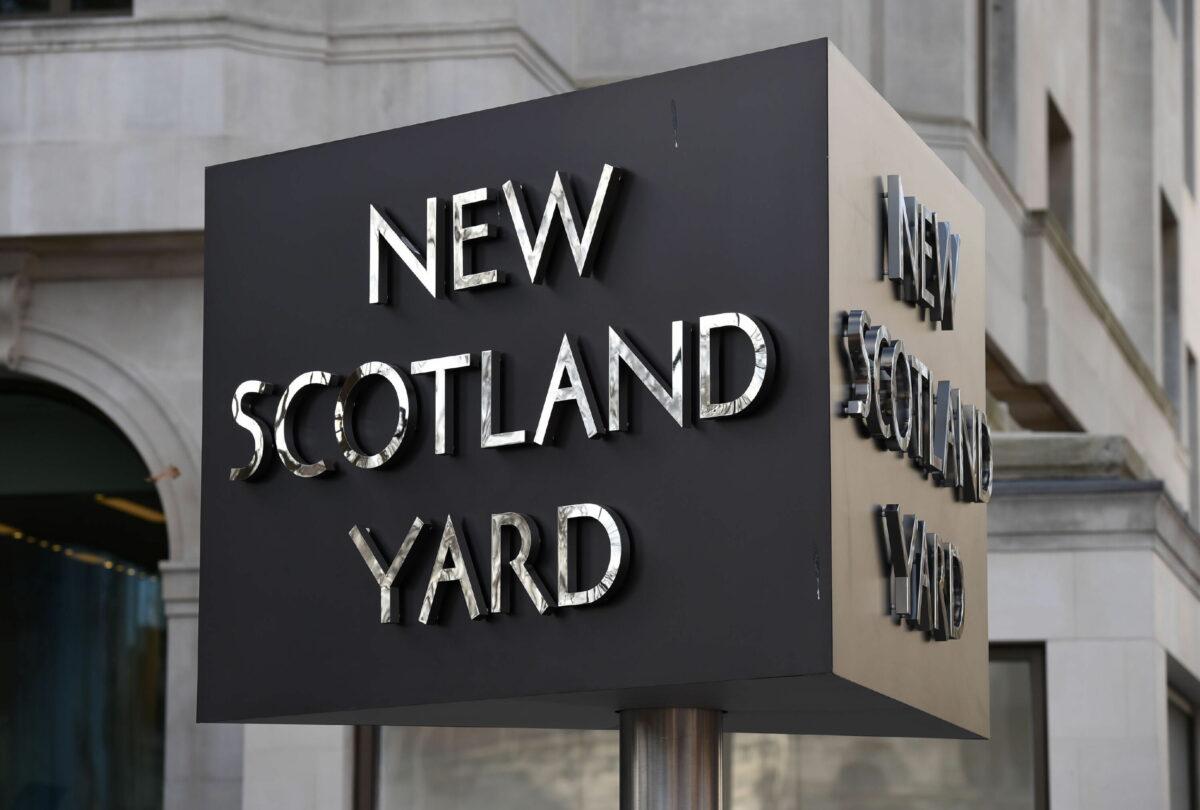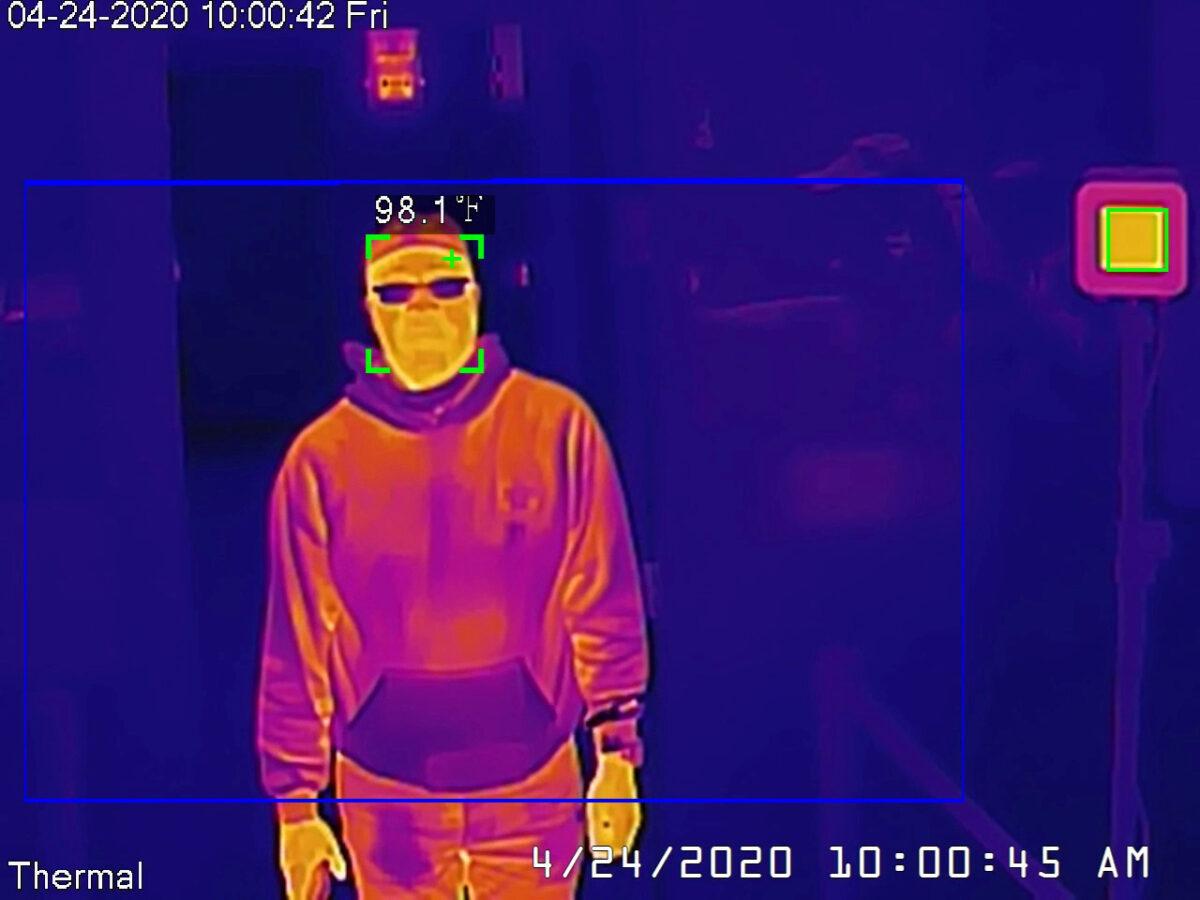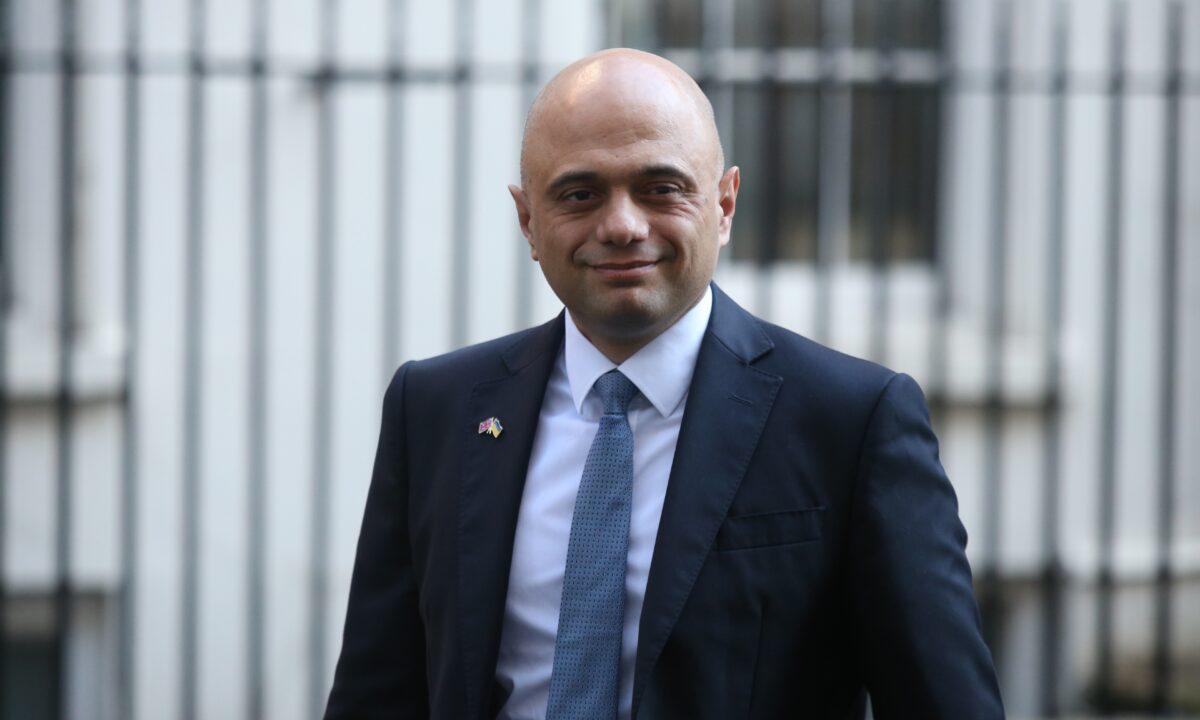At least 11 British police forces are using surveillance cameras made by Chinese state-controlled company Hikvision, a survey has found.
Conor Healy, director of government research at security and surveillance industry research group IPVM, told The Epoch Times that he believes Hikvision and Dahua, another Chinese surveillance camera company, are “directly responsible” for the scale of human rights abuses in Xinjiang.
Police Survey
Sampson said he wrote to chief officers of all 43 police forces in England and Wales, the Ministry of Defence, British Transport Police, and the Civil Nuclear Constabulary in June, asking about their use and governance of all overt surveillance camera systems deployed in public places.Of those who responded, a third, or 12, confirmed they were using surveillance cameras manufactured outside the UK. Eleven of them were using Hikvision cameras, including police forces in Bedfordshire, Cleveland, Hampshire, Lincolnshire, Norfolk, Northumbria, North Wales, Nottinghamshire, Suffolk, and the Metropolitan Police and British Transport Police.
Two of the 11 said they were aware of ethical concerns regarding Hikvision cameras. One of them claimed “the Home Office had investigated those concerns and were satisfied that there was no evidence of human rights violations,” the analysis said.
Others didn’t mention ethical concerns, saying they had not breached any procurement policies or government guidelines.
Some forces using Hikvision cameras said the cameras were stand-alone and were not part of the network.

The Met was the only force that said it was using live facial recognition (LFR). More than a third (13) said they would use LFR in the future. Six forces said they had access to either the Police National Database or the Child Abuse Images Database.
No forces said they were using Hikvision body-worn cameras, while 26 of the 28 forces using drones are using equipment from DJI, a privately-owned company in China, according to its website.
Hikvision ‘Directly Responsible’ for Human Rights Atrocities: Healy
Hikvision and Dahua, the world’s top manufacturers of surveillance cameras, have been blacklisted by the U.S. Federal Communications Commission for posing a threat to American national security.Both firms, which are ultimately controlled by the Chinese Communist Party (CCP), are known to supply surveillance equipment that has been used to target Uyghurs and other ethnic minorities in China’s Xinjiang region.

Ovalbek Turdakun, a Chinese Kyrgyz Christian who spent 10 months in a camp in 2018, immediately recognised Hikvision’s logo when Healy showed it to him, saying: “Video cameras. They are everywhere.”
Turdakun told Healy that he shared a cell with 22 people, who were not allowed to speak to each other, go to the toilet in the room, or stand up without permission.
Yet “the guards almost never entered,” Healy said, because they could monitor “an entire floor in these concentration camps using custom built sophisticated Hikvision technology.”
Security Risks ‘Quite Significant’
Hikvision’s controlling shareholder is the China Electronics Technology HIK Group, a subsidiary of state-owned China Electronics Technology Group Corporation (CETC), one of China’s “big 10” state-owned military industrial groups.“That was when the 911 terrorist attack made a splash in the global security and surveillance market. Chen [Zongnian] and Hu [Yangzhong] ... decided to found Hikvision under the auspices of the 52nd Research Institute,” the report said.
Healy said the products Hikvision and Dahua offer to Western clients are “nothing special” compared to other options but they often out-bid their competitors because the West has “a broken procurement system that fails to consider factors beyond the lowest bidder.”
Asked how these vulnerabilities can be exploited, Healy said bad actors can access recordings, archives, and settings, meaning they can “see what it sees and hear what it hears ... or turn it on or off and reposition it.”
When a camera is connected to a secure network, “depending on the setup of [the] network, it’s possible that you could use that device to then hack their information and steal their data off of their computers,” he added.

In April this year, then-health secretary Sajid Javid banned his department from buying security cameras from Hikvision after a procurement review revealed ethical concerns.
Sampson subsequently wrote to then-Cabinet Office minister Michael Ellis, Cabinet Secretary Simon Case, and Secretary of State for Levelling Up, Housing, and Communities Michael Gove, who was responsible for local government, saying the rationale behind Javid’s decision “must apply equally across all government departments, devolved administrations, and local authorities.”
Hikvision, Dahua, and the Home Office didn’t respond to requests for comment.





